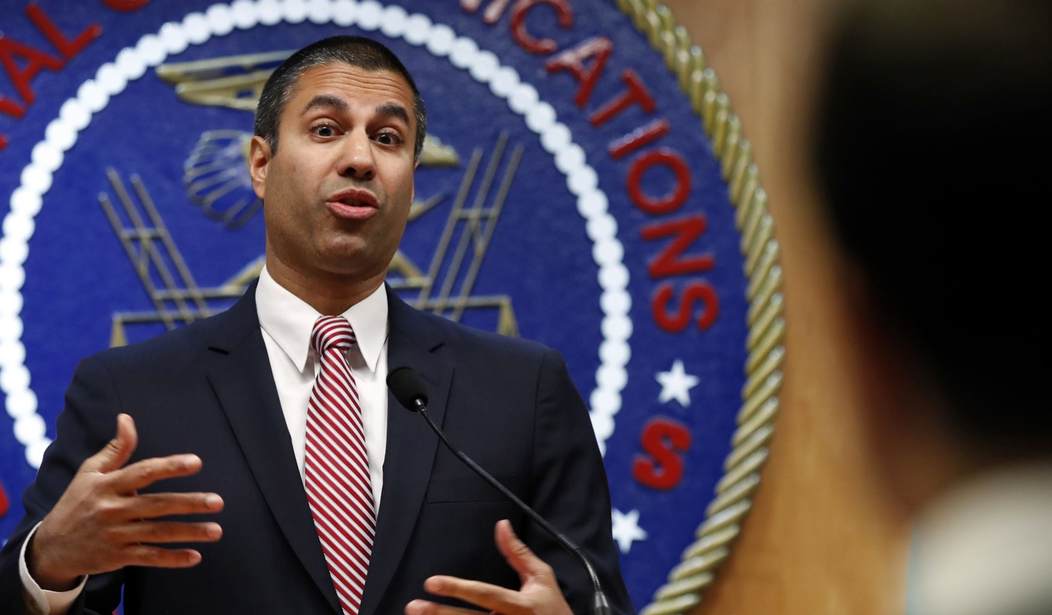This time of year, we pause to take stock of what happened in the year that has passed. Although there were plenty of policy developments to dislike in 2017, in the spirit of the holidays, I will stick to my three favorites.
Forget, for now, about immigration policy, free trade setbacks, the busting of the budget caps and the continuation of the war on drugs and the pain it causes its victims. 2017 may or may not have been a net positive; that's for each of you to decide.
First, President Donald Trump just signed a historic reduction in the corporate income tax rate, from 35 percent -- the highest of all industrialized nations -- to 21 percent. And except for a one-time repatriation tax, the U.S. will no longer tax most profits made by businesses overseas.
Both changes should boost economic growth and American workers' wages. Moreover, the reform removes many of the distortions that discourage companies from investing foreign-earned income in the United States and prompt them to use tax avoidance techniques.
Second, this was a very good year for deregulation. Cutting taxes isn't the only way to boost growth and raise wages; innovation may matter even more. Getting rid of duplicative and outdated regulatory hurdles to innovation promises to have a real impact on our lives. That's what the Trump administration, with the help of Congress, seems committed to doing.
When the president first got to the White House, for example, he froze many not-yet-implemented Obama-era regulations. These include the punishing overtime pay regulation, which would have increased the cost of employing workers and ultimately reduced their base compensation to offset the increase in overtime pay.
Trump also issued an executive order requiring that for every new regulation issued, "at least two prior regulations be identified for elimination, and that the cost of planned regulations be prudently managed and controlled through a budgeting process." That should put the brakes on the regulatory frenzy of the past few years. Congress also used the Congressional Review Act to eliminate another 14 costly regulations, a tool that had been used only once before.
Recommended
At the agency level, Food and Drug Administration Commissioner Scott Gottlieb is doing his share to boost innovation and investment through deregulation. The FDA is working on lowering the cost of development to bring a new drug to market -- $2.6 billion on average, according to one Tufts University study -- by streamlining and lightening the approval process without jeopardizing safety.
Meanwhile, the Federal Communications Commission, led by Chairman Ajit Pai, eliminated misleading "net neutrality" rules. As my colleague Brent Skorup explains, "net neutrality had given the FCC far-reaching authority to approve or reject new internet business models, technologies and services based on a vague standard and to initiate investigations into telecom and tech companies for contrived violations. The FCC appointed itself an invasive zoning board for the internet."
Last but not least are the sustained efforts by Sens. Pat Toomey, R-Pa., and Richard Shelby, R-Ala., to slow down the process that would restore the Export-Import Bank, a bastion of cronyism, to its full and former glory.
Appointing enough board members to give Ex-Im a full quorum would instantly restore the agency's ability to sign off on deals above $10 million for the benefit of a handful of very large foreign and domestic corporations. By resisting, the two senators are fighting a lonely fight on behalf of the unseen victims of corporate welfare.
Scott Garrett's nomination for Ex-Im president provided some hope, as he promised to cut down on the cronyism. However, members of the Senate Committee on Banking, Housing and Urban Affairs blocked his nomination and confirmed several board members. If they are confirmed by the whole Senate, it's back to business for the "Bank of Boeing."
Thanks to the recent efforts of Toomey and Shelby, Ex-Im's return to functionality is stalled a little longer. But whatever happens to the bank, principled politicians are rare. Politicians who resist the call of special interests are even rarer, which is why their action is worth celebrating.
Tax reform, regulatory reform and the continued fight against cronyism were the highlights of 2017. Let's hope 2018 brings advances in the fight for economic freedom and prosperity.

























Join the conversation as a VIP Member